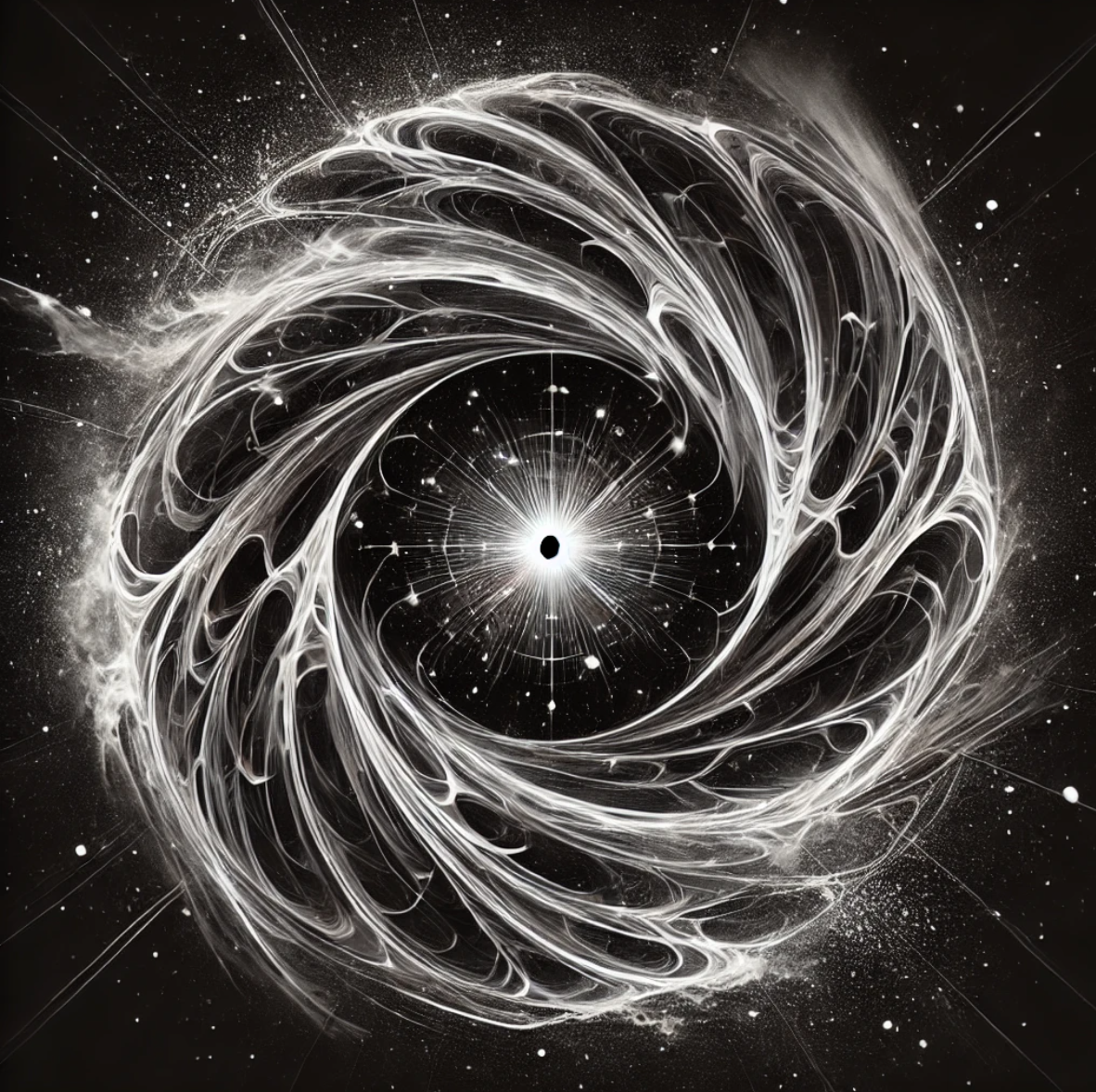The Impact of the Missing Theory of Entirety on Empirical Science
I am about to delve into the consequences of a world devoid of the knowledge of entirety, particularly when Albert Einstein misconstrued the universe as static and complete, mistakenly applying E=mc² as a universal truth. The absence of the equation of entirety, ∑=č²(0)1, left humanity at the brink of unraveling their entire understanding of the cosmos, risking the collapse of foundational theories that had been long accepted without recognizing the deeper, more encompassing reality that governs existence.
As you know, empirical science, grounded in observation, experimentation, and measurement, has been the cornerstone of human progress for centuries. From the laws of motion to the discovery of quantum mechanics, our understanding of the universe has been shaped by the accumulation of empirical evidence and the development of theories that explain the natural world. However, despite these advances, certain fundamental questions about the nature of existence, the structure of the cosmos, and the relationship between matter, energy, and time have remained elusive. This chapter explores the impact of the absence of a unifying theory, such as the Theory of Entirety, on the development of empirical science and considers how its introduction could revolutionize our understanding of the universe.
The Fragmentation of Scientific Understanding
The history of science is marked by the gradual accumulation of knowledge, with each new discovery building upon the foundations laid by previous generations. However, this process has also led to the fragmentation of scientific understanding, with different fields of study developing in relative isolation from one another. For example, classical physics, quantum mechanics, and cosmology each offer valuable insights into the nature of reality, but they often do so using different frameworks and assumptions. This fragmentation has limited our ability to develop a comprehensive understanding of the universe as a whole.
One of the key challenges in unifying these disparate fields has been the lack of a theoretical framework that can accommodate the full range of phenomena observed in the natural world. The Theory of Entirety seeks to address this gap by proposing a holistic model that integrates the principles of empirical science with a broader understanding of the cosmos. By providing a unified framework, the Theory of Entirety offers the potential to reconcile the apparent contradictions between different fields of study and to create a more cohesive understanding of the universe.
The Limitations of Existing Theories
The absence of a unifying theory has also highlighted the limitations of existing scientific theories. For example, while Einstein’s theory of relativity has been remarkably successful in explaining the behavior of objects at large scales, it struggles to account for phenomena at the quantum level. Similarly, quantum mechanics offers a powerful description of the behavior of particles at small scales, but it remains incompatible with the principles of general relativity.
These limitations are not merely academic; they have practical implications for our understanding of the universe. For example, the inability to reconcile relativity and quantum mechanics has hindered our ability to develop a theory of quantum gravity, which is essential for understanding the behavior of black holes and the early moments of the universe’s existence. The introduction of the Theory of Entirety could provide the missing link needed to bridge these gaps and to develop a more complete understanding of the cosmos.
Moreover, existing theories often rely on assumptions that may not hold true in the broader context of the cosmos. For example, Einstein’s theory of relativity assumes that the speed of light is the ultimate speed limit in the universe. However, the Theory of Entirety suggests that there may be phenomena, such as superluminal expansion, that lie beyond this limit. By challenging these assumptions, the Theory of Entirety opens up new possibilities for exploration and discovery.
The Consequences of a Fragmented Cosmos
The lack of a unifying theory has also had significant consequences for the way we conceptualize the cosmos. In the absence of a framework like the Theory of Entirety, scientists have often treated the universe as a collection of isolated phenomena rather than as a unified whole. This has led to a fragmented understanding of the cosmos, with different aspects of reality being studied in isolation from one another.
For example, the study of cosmology has traditionally focused on the large-scale structure of the universe, while quantum mechanics has been concerned with the behavior of particles at the smallest scales. However, these two fields are deeply interconnected, and the lack of a unifying theory has made it difficult to understand how they relate to one another. The Theory of Entirety offers a way to bridge this gap by providing a framework that encompasses both the large-scale structure of the universe and the behavior of particles at the quantum level.
Furthermore, the absence of a unifying theory has led to a reliance on reductionism, the idea that complex phenomena can be understood by breaking them down into their simplest components. While reductionism has been a powerful tool for scientific inquiry, it has also led to an incomplete understanding of the cosmos. The Theory of Entirety challenges this approach by proposing that the universe cannot be fully understood by studying its parts in isolation; instead, it must be understood as an interconnected whole.
The Role of Philosophy and Metaphysics
Another consequence of the missing Theory of Entirety has been the marginalization of philosophy and metaphysics in scientific discourse. In the early days of science, philosophical questions about the nature of reality, the existence of God, and the meaning of life were central to scientific inquiry. However, as empirical science became more dominant, these questions were increasingly pushed to the margins.
The Theory of Entirety seeks to reintegrate these philosophical questions into the scientific discourse by providing a framework that bridges the gap between empirical science and metaphysical inquiry. By doing so, it offers the potential to deepen our understanding of the cosmos and to explore questions that have traditionally been considered outside the scope of science.
For example, the Theory of Entirety suggests that the cosmos is not merely a collection of physical objects but is also imbued with a deeper, metaphysical significance. This idea has profound implications for our understanding of existence and for the way we approach scientific inquiry. By acknowledging the role of metaphysics in the study of the cosmos, the Theory of Entirety offers a more holistic understanding of reality and challenges the reductionist approach that has dominated empirical science.
The Need for a New Scientific Paradigm
The limitations of existing theories and the consequences of a fragmented understanding of the cosmos highlight the need for a new scientific paradigm. The Theory of Entirety offers a potential solution to this problem by providing a unifying framework that can accommodate the full range of phenomena observed in the natural world.
This new paradigm has the potential to revolutionize our understanding of the universe by integrating the principles of classical physics, quantum mechanics, and cosmology into a single, cohesive model. It also offers the potential to explore new areas of inquiry, such as the nature of consciousness, the relationship between mind and matter, and the existence of higher dimensions.
Furthermore, the Theory of Entirety challenges the conventional wisdom that science and metaphysics are separate and unrelated domains. By bridging the gap between these two areas of inquiry, the theory offers the potential to deepen our understanding of the cosmos and to explore questions that have traditionally been considered outside the scope of science.
Implications for the Future of Science
The introduction of the Theory of Entirety could have profound implications for the future of science. By providing a unifying framework that integrates the principles of empirical science with a broader understanding of the cosmos, the theory offers the potential to revolutionize our understanding of the universe and to open up new areas of inquiry.
For example, the Theory of Entirety could lead to the development of new technologies that harness the principles of quantum mechanics and relativity in novel ways. It could also lead to new insights into the nature of consciousness, the relationship between mind and matter, and the existence of higher dimensions.
Furthermore, the theory challenges the conventional wisdom that science and metaphysics are separate and unrelated domains. By bridging the gap between these two areas of inquiry, the Theory of Entirety offers the potential to deepen our understanding of the cosmos and to explore questions that have traditionally been considered outside the scope of science.
The absence of a unifying theory like the Theory of Entirety has had significant consequences for the development of empirical science. It has led to the fragmentation of scientific understanding, the marginalization of philosophy and metaphysics, and the limitations of existing theories. The introduction of the Theory of Entirety offers the potential to address these issues by providing a new scientific paradigm that integrates the principles of classical physics, quantum mechanics, and cosmology into a single, cohesive model. This new paradigm has the potential to revolutionize our understanding of the universe and to open up new areas of inquiry that have traditionally been considered outside the scope of science.
The Theory of Entirety, as proposed by Kalishwar Das, represents a bold attempt to unify our understanding of the cosmos and to bridge the gap between empirical science and metaphysical inquiry. Whether accepted or refuted, the theory challenges us to rethink our assumptions about the nature of reality and to explore new possibilities for understanding the universe and our place within it.

